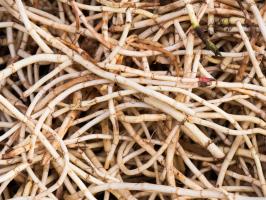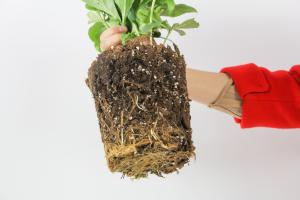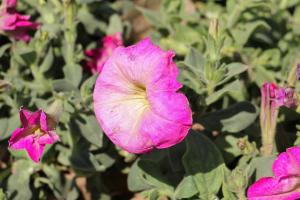What to Spray on Your Pot Plants for Bugs
If you're growing pot plants, you may find that pests are a constant problem. Bugs can damage your plants, reducing yields or even killing them entirely. However, you don't necessarily have to resort to toxic chemicals to keep bugs at bay. Here are some natural remedies you can use to keep your pot plants healthy and pest-free.
Spray with Neem Oil
Neem oil is one of the most popular solutions for controlling pests on pot plants. It's a natural pesticide that's derived from the neem tree. This oil contains compounds that insect pests find distasteful. Spray it directly onto the leaves and stems of your pot plants, and pests will be repelled or killed.
Neem oil is also effective against mites and fungi, making it an excellent all-around solution for plant health problems. You can purchase neem oil at many garden supply stores or online.
Use Soap and Water
If you're looking for a homemade solution, try using soap and water to control pests on your pot plants. This method is safe and inexpensive, but it's also effective against pests like aphids, mites, and whiteflies.
To make the solution, mix a couple of teaspoons of dish soap into a gallon of water. Pour the mixture into a spray bottle and spray it directly onto your pot plants. Be sure to spray the undersides of leaves, where pests often hide.
Try Garlic Spray
If you're dealing with pests like spider mites, try using garlic spray to repel them. Garlic contains sulfur compounds that pests find distasteful, so spraying your pot plants with garlic extract can help repel these bugs.
To make garlic spray, blend a handful of garlic cloves with a cup of water. Strain the mixture and dilute it with a gallon of water. Then, pour the mixture into a spray bottle and apply it to your plants. Keep in mind that garlic spray may also repel beneficial insects, so use it only if you have a serious pest problem.
Use Diatomaceous Earth
Diatomaceous earth is a natural substance made from the remains of tiny sea creatures. It's an effective solution for controlling pests like ants, earwigs, and slugs. This substance works by cutting the exoskeleton of pests, causing them to dehydrate and die.
To use diatomaceous earth, sprinkle it around the base of your pot plants. You can also dust it onto leaves and stems. However, be careful not to inhale diatomaceous earth, as it can irritate your respiratory system.
Final Thoughts
Keeping your pot plants healthy and pest-free is important for achieving a bountiful harvest. Before resorting to synthetic pesticides, try using natural remedies like neem oil, soap and water, garlic spray, and diatomaceous earth. These solutions can help you control pests without harming the environment or your health.

 how many times do yo...
how many times do yo... how many planted tre...
how many planted tre... how many pine trees ...
how many pine trees ... how many pecan trees...
how many pecan trees... how many plants comp...
how many plants comp... how many plants can ...
how many plants can ... how many plants and ...
how many plants and ... how many pepper plan...
how many pepper plan...

































